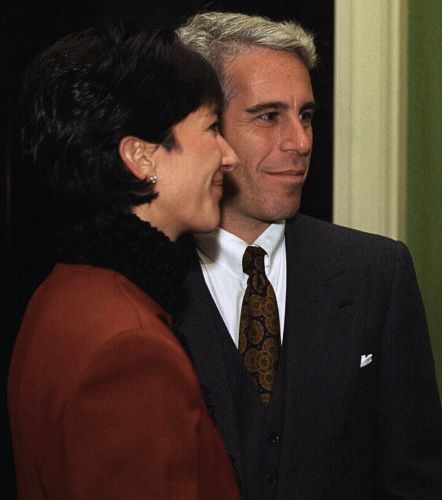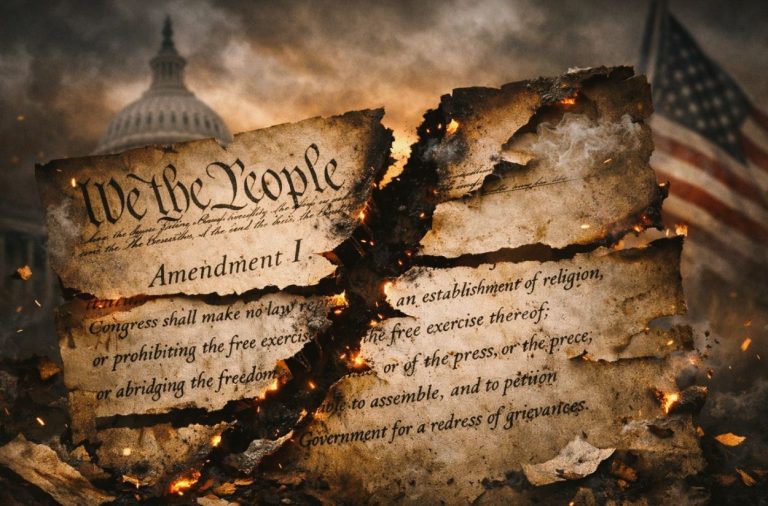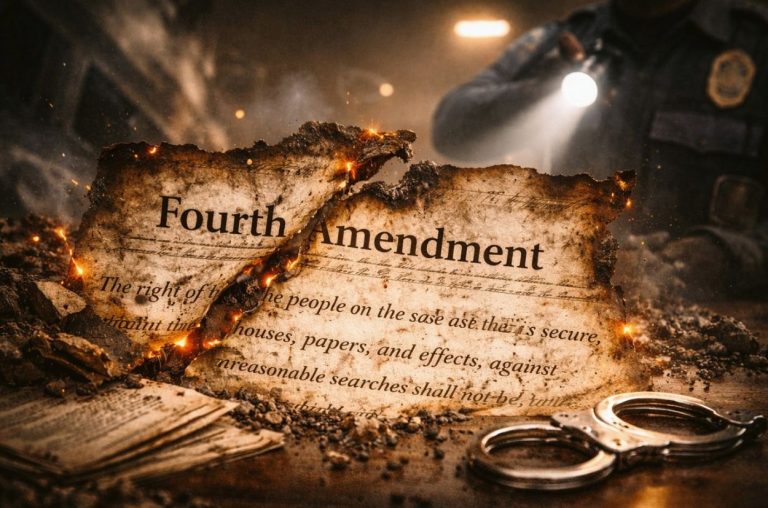

If Trump accepts her “deal,” and the DOJ follows through on its effort to wipe him from the record, it will not be an act of justice. It will be a cover-up.

By Matthew A. McIntosh
Public Historian
Brewminate
Introduction
In the shadows of American power, where politics and privilege collide, truth is rarely loud. It whispers through redacted files, is buried in classified memos, and gasps for air beneath layers of spin. And now, with news that Ghislaine Maxwell has met with federal prosecutors in what appears to be a desperate bid for clemency, from Donald Trump, no less, the whispers are beginning to roar.
This is not justice. This is choreography.
Maxwell, convicted for her central role in Jeffrey Epstein’s vast web of child trafficking and abuse, has never been a credible guardian of truth. She was his lieutenant, his handler, his gatekeeper. And now, she appears ready to barter names and narratives in exchange for a pardon from the very man whose name she may be most desperate to cleanse: Donald J. Trump.
The New Strategy: Reinvent, Redirect, Rewrite
The sudden emergence of Maxwell into DOJ conversations isn’t coincidence. It’s part of a larger, increasingly transparent effort to recast the Epstein narrative, not as a scandal implicating the elite, but as a partisan weapon to be neutralized and redeployed. That her cooperation is being entertained by a Trump-aligned Justice Department, with reported efforts to scrub Trump’s name from associated documents, suggests this isn’t about truth-telling. It’s about damage control.
Trump’s documented ties to Epstein go back decades. From parties at Mar-a-Lago to his infamous quote that Epstein “likes beautiful women, on the younger side,” there is no ambiguity about their relationship. And while Trump’s defenders are quick to insist he “banned” Epstein from Mar-a-Lago after a falling out, they offer no such clarity on what drew them together in the first place, or what was tolerated in those shared circles.
Now, with a second term in hand and a Justice Department once again under his thumb, Trump appears poised to rewrite history, with the help of a convicted sex trafficker who suddenly claims to have information that could absolve him.
The Desperation of a Deal
Make no mistake: Maxwell is not a whistleblower. She is not a reformer. She is a woman who enabled the systematic abuse of underage girls for years and only now finds herself out of options. Her sudden willingness to “cooperate” is not born of conscience, it’s born of necessity.
This is a pattern we’ve seen before. In the final acts of crumbling empires, those closest to the center of rot try to reinvent themselves. They don the costume of repentance, not because they regret their role, but because it’s the last currency they have.
What makes this moment particularly grotesque is that her currency may be accepted.
Wiping the Record: The New American Ministry of Truth
Reports of Trump’s DOJ quietly instructing staff to “scrub” references to him from Epstein-related files should chill every citizen who still believes in democratic accountability. This is not just revisionism, it’s authoritarian hygiene. The laundering of history.
It echoes the tactics of regimes we claim to oppose: erasing archives, purging inconvenient truths, and casting dissent as treason. If successful, it will not only obscure Trump’s own connections, but lay the groundwork to weaponize the Epstein narrative against others, opponents, critics, or scapegoats more useful in the next election cycle.
In other words, we are witnessing the transformation of one of the darkest scandals in modern American history into a tool for consolidating power.
Why It Matters Now
Maxwell’s “cooperation” is not just about Trump. It’s about precedent. If she is rewarded, if her lies are treated as truth, and her narrative becomes official record, we send a clear message: that power can rewrite reality. That justice is negotiable. That victims are expendable if their stories become politically inconvenient.
This is not merely a personal failing. It is a systemic one. A society that allows the most powerful to define the terms of their own exoneration is not a democracy, it is a performance.
And the cost of that performance is paid by the most vulnerable: the victims of Epstein and Maxwell, whose pain is now being repurposed as propaganda.
A Familiar Dance
We’ve seen this before. Harvey Weinstein surrounded himself with Democratic donors and progressive causes. Bill Cosby weaponized the iconography of Black excellence. The Catholic Church cloaked its predators in robes and ritual. And now, Ghislaine Maxwell is trying to drape herself in patriotism and redemption, not because she believes in either, but because she believes in survival.
Trump’s administration, never known for its reverence for truth, may find in Maxwell the perfect partner: someone whose narrative is flexible, whose guilt is absolute, and whose loyalty can be purchased with the right pardon.
Conclusion: The Silence We Can’t Afford
We must not allow this to stand. Not only for the victims whose stories are once again being commodified, but for the broader principle that truth should never be subject to negotiation.
Maxwell is not a savior. She is a symbol of a society that protects predators so long as they are powerful enough to rebrand themselves.
If Trump accepts her “deal,” and the DOJ follows through on its effort to wipe him from the record, it will not be an act of justice. It will be a cover-up. A betrayal. And a warning.
Because if the truth about Epstein can be erased, then anything can. And the next predator will be watching, learning, and waiting.
Originally published by Brewminate, 07.28.2025, under the terms of a Creative Commons Attribution-NonCommercial-NoDerivatives 4.0 International license.


